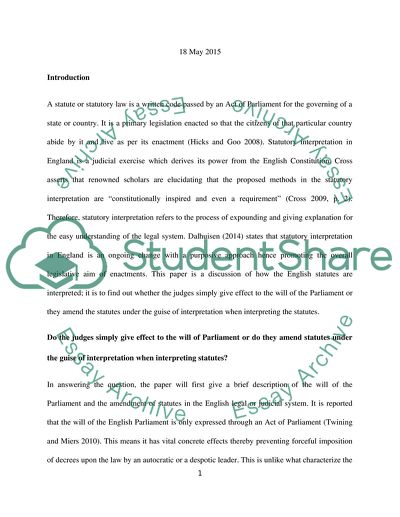Cite this document
(When Interpreting Statutes, Do Judges Simply Give Effect to the Will o Case Study, n.d.)
When Interpreting Statutes, Do Judges Simply Give Effect to the Will o Case Study. Retrieved from https://studentshare.org/law/1695148-when-interpreting-statutes-do-judges-simply-give-effect-to-the-will-of-parliament-or-do-they-amend-statutes-under-the-guise-of-interpretation
When Interpreting Statutes, Do Judges Simply Give Effect to the Will o Case Study. Retrieved from https://studentshare.org/law/1695148-when-interpreting-statutes-do-judges-simply-give-effect-to-the-will-of-parliament-or-do-they-amend-statutes-under-the-guise-of-interpretation
(When Interpreting Statutes, Do Judges Simply Give Effect to the Will O Case Study)
When Interpreting Statutes, Do Judges Simply Give Effect to the Will O Case Study. https://studentshare.org/law/1695148-when-interpreting-statutes-do-judges-simply-give-effect-to-the-will-of-parliament-or-do-they-amend-statutes-under-the-guise-of-interpretation.
When Interpreting Statutes, Do Judges Simply Give Effect to the Will O Case Study. https://studentshare.org/law/1695148-when-interpreting-statutes-do-judges-simply-give-effect-to-the-will-of-parliament-or-do-they-amend-statutes-under-the-guise-of-interpretation.
“When Interpreting Statutes, Do Judges Simply Give Effect to the Will O Case Study”, n.d. https://studentshare.org/law/1695148-when-interpreting-statutes-do-judges-simply-give-effect-to-the-will-of-parliament-or-do-they-amend-statutes-under-the-guise-of-interpretation.


